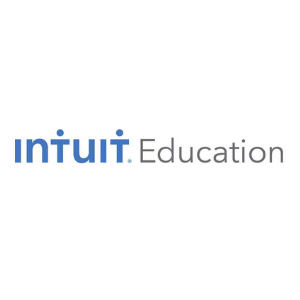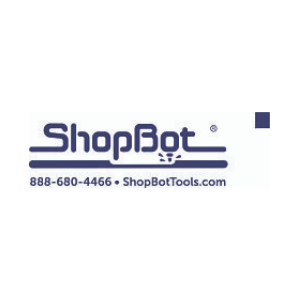Breakout Sessions 6
 LEARN MORE ABOUT HP LIFE
LEARN MORE ABOUT HP LIFE
Room: Laguna
Level: Beginner
Track: Product Education Session
HP LIFE is a free, self-paced, online program available for students, entrepreneurs, and small business owners to learn the skills needed to establish and/or grow a business. HP LIFE provides 30 interactive course modules covering topics in finance, operations, marketing and communications. The course modules are available in seven languages and are used by hundreds of thousands of people across the world. Come learn more about how you can use HP LIFE in your classroom, SBDC, makerspace and more!
Learning Objectives:
- Hear an overview of HP LIFE
- Listen to current users feedback of the product
- Strategize how you can use this free resource at your college and in your community
LEAH DEPPERT, Director of Marketing & Communications, NACCE, OH
LEVERAGING ENTREPRENEURIAL LEARNING TO BUILD SELF-SUSTAINING CAREERS IN A RAPIDLY EVOLVING JOB MARKET
Room: Sunset
Level: Beginner
Track: Academic Programs Track
For centuries the primary role of college institutions has been to prepare students for opportunities to join the workforce upon graduation. However, in an ever-evolving world, there has been increased recognition of the instrumental role that acquiring entrepreneurial skills can play in college students work-related endeavors. Given its instrumental role, entrepreneurial education can also have the power to provide students with multiple skills that are applicable in short-term educational and workforce-related opportunities. Of these benefits, there are two that can profoundly support students in the pursuit of their endeavors: 1) developing the tenets of an entrepreneurial mindset to drive purpose driven work and 2) learning how to navigate entrepreneurial landscapes to increase beneficial transferable workforce related soft-skills.
In this workshop, Ethos aims to facilitate group activities with current educators to walk through employable practices for interdisciplinary entrepreneurial learning. To start the workshop educators will be engaged in icebreaker activities that allow them to share pluses and minuses related to their unique entrepreneurial education styles. Following the dialogue of current educational styles, educators will have the opportunity to map potential deltas, or employable improvements, with fellow colleagues. To conclude the workshop, Ethos aims to engage attendees in reviewing entrepreneurial educational case studies that illuminate strategic practices that have worked across the country. Educators will then have the opportunity to create simulations of employable strategies that can meet their students learning needs.
Learning Objectives:
- Elicit Opportunities for Educators to Learn Best Practices from Peers: Create a community of sharing where entrepreneurial educators can exchange knowledge and information with one another.
- Support Educators in Promoting Learnings Connectedness to Students Passions: Facilitate programmatic opportunities for educators to create educational curriculums that engage and excite student participants.
- Create Tangible Programs that Portray the Transferability of Entrepreneurial Education Practices: Explore case studies and examples of how entrepreneurial mindset training has been implemented in the classroom and turned into transferable skills in a wide variety of industries.
JUSTIN DENT, Executive Director, Ethos, NY
VADIM REVZIN, Entrepreneur in Residence, Ethos, NY
 LEARN MORE ABOUT INTUIT EDUCATION OFFERINGS + QUICKBOOKS
LEARN MORE ABOUT INTUIT EDUCATION OFFERINGS + QUICKBOOKS
Room: Cardiff
Level: Beginner
Track: Product Education Session
Learn how to Empower your students with free QuickBooks and ProConnect Tax. Intuit Education is here to help your school develop the next generation of entrepreneurs and accountants with the skills and knowledge they need to succeed. Whether you want to teach an entire accounting or tax course, or just a module within a class, your students will have access to free software once they register with their student emails. You will save time preparing for classes with lecture presentations, classroom exercises and more.
Learning Objectives:
- Learn Intuit Education offerings (QuickBooks, TurboTax, Mint, and D4D).
- Build the necessary skills and knowledge to teach QuickBooks in your classroom.
- Receive free software licenses for your students!
RYAN MCALLISTER, Channel Sales Leader, Intuit, CA
JOSH PHELON, Account Manager, Education Channel, Intuit, UT
THE FUNDAMENTALS OF BUSINESS MODEL DESIGN
Room: Diamond Cove
Level: Beginner
Track: Entrepreneurship 101 Track
An important part of creating a successful business is ensuring the key building blocks come together into a coherent business model. With technology and the internet making possible so many ways to sell a product, choosing the right business model can be a daunting task. The Business Model Canvas has become a favorite tool for entrepreneurs around the world to help find the best way to monetize their business idea. In this session, participants will learn about the Business Model Canvas, the key concepts in business model design, and tools to assess the viability of a business model based on 7 dimensions.
Participants will work in teams to create a business model for a case study and assess each other’s ideas using the tools presented. The session will include examples of how the Business Model Canvas is being used at various colleges throughout the Inland Empire, and will close with a discussion of best practices when teaching students and entrepreneurs to use the Business Model Canvas for their own businesses.
Learning Objectives:
- Learn what the Business Model Canvas is and the 9 building blocks that are a part of the canvas.
- Understand how to assess whether a business idea is viable and ways to fix it if its not.
- Learn best practices in teaching the Business Model Canvas or implementing it into an entrepreneurship curriculum.
ANA GREIF, Program Manager, Pima Community College, AZ
LISA KIPLINGER-KENNEDY, DSN Business and Entrepreneurship, Inland Empire Desert Regional Consortium, CA
IGNITE THE ENTREPRENEURIAL IN YOU!
Room: Emerald Cove
Level: Intermediate
Track: Workforce & Continuing Education Track
HCC has embarked on an organizational transformation that includes implementing Entrepreneurial Capacity. The goal is to build a culture that encourages faculty, students and staff to be enterprising, creative and innovative. With that in mind, HCC entrepreneurial staff developed several workshops titled “The Entrepreneur in You” and “Thinking Like an Entrepreneur Can Enhance your Career”. Results of these workshops are inspiring!
Learning Objectives:
- Participants will learn about the key components of the workshops that foster entrepreneurship.
- How to attract students/faculty/faculty to workshops.
- How to build an entrepreneurial culture.
MAYA DURNOVO, Chief Entrepreneurial Officer, Houston Community College, TX
DAVID REGENBAUM, Entrepreneur in Residence, Houston Community College, TX
 SHOPBOT DIGITAL FABRICATION TOOLS IN COMMUNITY COLLEGES: TOOLS FOR MAKING, TOOLS FOR LIFE
SHOPBOT DIGITAL FABRICATION TOOLS IN COMMUNITY COLLEGES: TOOLS FOR MAKING, TOOLS FOR LIFE
Room: Crystal Cove
Level: Beginner
Track: Product Education Session
Maker Spaces/Digital Fabrication Labs can play many roles in a Community College. Artists and retirees can learn new techniques to explore their creativity. Students headed into STEM programs can explore Design Thinking and Engineering Techniques. For those headed into the workforce, classes and coursework can result in certification that re-assures employers that their new hires are coming in with relevant skills. For entrepreneurs with ideas that they want to explore, the MS/DFL is a place to prototype and connect with others of like mind. By taking advantage of the Small Business/Entrepreneurship programs available at many Community Colleges, entrepreneurs may even be able to launch their idea/product. Come discuss how ShopBot can work in Maker Spaces/Digital Fabrication Labs to contribute Tools for Making, Tools for Life.
- How Maker Spaces/Digital Fabrication Labs can provide a framework for Problem/Project Based Learning across disciplines and career goals.
- Focus of a MS/DFL: Certification, Design Thinking, or both?
- Train the Trainers: What kinds of Professional Development should MS/DFL managers/faculty receive to provide the best experience for their students.
SALLYE COYLE, PH.D., Director of Community Outreach, ShopBot Bot Tools, Inc, Consultant, TIES (Teaching Institute for Education in STEM), and Consultant, Good Harbor Bay
EMBEDDING ENTREPRENEURSHIP EDUCATION INTO DIFFERENT WORKFORCE COHORTS
Room: Coral Cove
Level: Intermediate
Track: Workforce & Continuing Education Track
In all of LAVC’s different workforce training cohorts: Biotech, IT tech, Human Resource Assistant Training, Manufacturing Academy, Coop Education, and Metro: Bus Driver Training Program, the concepts of Entrepreneurship education have been embedded. These concepts are collaboration, communication, adaptability, persistence, emotional intelligence, problem solution, and empathy.
This workshop will share some best practices used to teach the above 21st Century job skills to the different cohort members.
Learning Objectives:
- Apply skills gained from working on collaborative projects towards understanding team building.
- Use a variety of innovative, 21st c. soft skills in order to develop as professionals and learn adaptable communication and marketing skills.
- Reflect and bring awareness about their role in a profession and within its cultural, social, economic, and political worlds.
FATEMA BALDIWALA, Adjunct Faculty: English and Workforce Training, LAVC: Los Angeles Valley College, CA
RAFFI KAHWAJIAN, Los Angeles Valley College, CA
WHAT ARE WE TO MAKE OF THIS?
Room: Sapphire Cove
Level: Advanced
Track: Academic Programs Track
Cabrillo College, one of the California Community College (CCC) Maker colleges, shares its discoveries and takeaways following the culmination of its 2-year $720K grant to build out its makerspace as a center for creative collaboration, design thinking, and problem-solving across disciplines. The Cabrillo College Makerspace team will explain how they, with the assistance of a contracted Job Developer from Goodwill Industries Central Coast, overcame challenges, made discoveries, and leveraged successes in their new makerspace to create a catalyst for real-world cross-disciplinary creative problem-solving, new workforce development opportunities for students in the Monterey Bay Region, and entrepreneurial activity.
The panel will discuss how Cabrillo College developed an industry, community, and college-responsive makerspace that prepared many students for a wide range of successful paid maker-related internships in industry and non-profits. Successful strategies for developing new internship opportunities, curriculum, and an extensive ecosystem for spawning formal and informal creative partnerships will be shared. The college’s success with student interns addressing a real-world business challenge through the special Makermatic initiative will also be shared. The session will include illustrative and engaging success stories and video vignettes, and Q & A.
Learning Objectives:
- Learn successful strategies and pitfalls to avoid when building out an industry, community, and college-responsive makerspace.
- Discover what unexpected benefits can emerge when a college invests in creating a high-tech, cross-disciplinary creative playground where novel problem-solving success stories emerge organically and serendipitously from student and club level collaborations.
- Understand the importance and value of investing in an experienced and well-connected internship/job developer for your college makerspace to realize maximum workforce development benefits for students.
JOHN GRAULTY, Dean of Visual, Applied, & Performing Arts, Cabrillo College, CA
PAYSON MCNETT, Cabrillo College Makerspace Faculty Director, Cabrillo College, CA
MARY GOVAARS, Program Coordinator, Cabrillo College Makerspace, CA
IMAKE (INMATES MAKE), BEHAVIOR CHANGE THROUGH ENGINEERING PROGRAMS
Room: Mariner Cove
Level: Advanced
Track: Entrepreneurship 101
As a former Tech Design Instructor in corrections for 8 years, I noticed we often are more creative when we have to survive with limited tools, less distraction and finally finding a way out of the conditions. This session explores developing a program in the area of Design, Draft and Build to students in general and in particular to individuals who have to spend years incarcerated, with the goal of creating self-efficient and independent makers post prison or at least shifting their perspective toward life and work.
This session will explore how we can help students in low served areas shape their ideas and designs from a dream to reality by using new technologies in the area of CAD, CAM, VR and CNC. What if we have people leaving the prison with plans and the motivation to create jobs vs getting a job? This skill is also for any individual who always had a dream of making something and never had a chance to build it.
Learning Objectives:
- Develop Engineering-Entrepreneurship program for incarcerated students.
- Learn about potentials and possibilities with re-entry programs.
- Brain storm on how to implement Entrepreneurship in Correction Centers.
FARSHID MIRZAEI, Assistant Professor, Drafting, Norco College, CA
